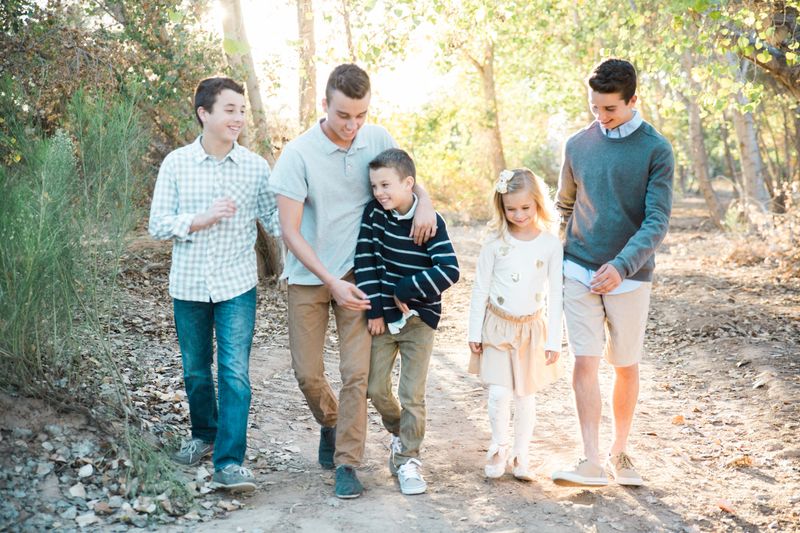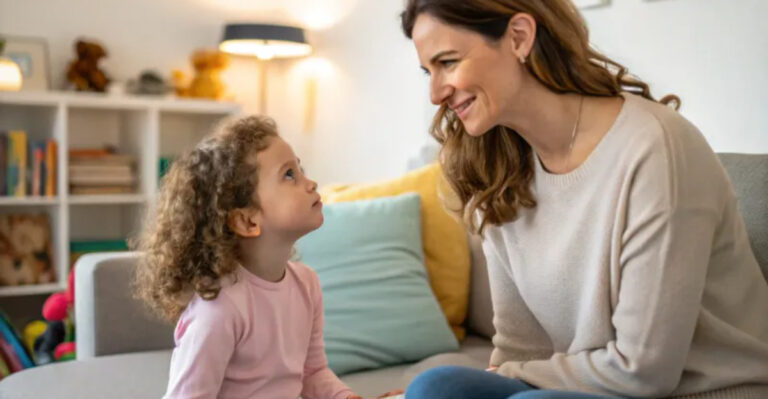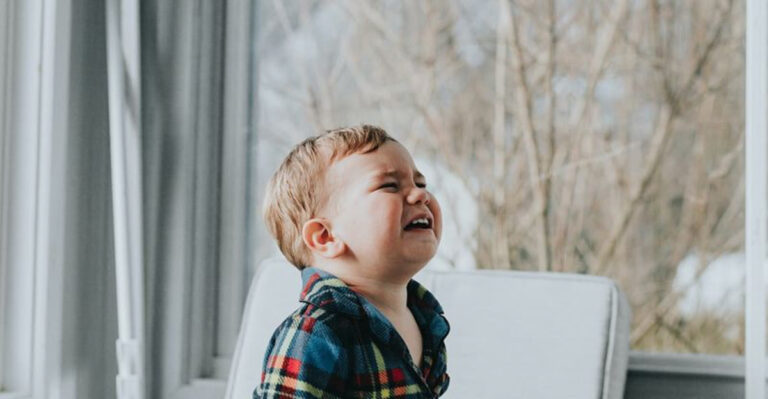I’m a Mom of 5 — These are the 15 Reasons Why Parenting Doesn’t Get Easier as the Kids Get Older
Parenting is an evolving journey where each stage brings unique challenges. As a mother of five, I’ve learned that while early parenting years are demanding in their own right, the complexities grow as children age.
Emotional depth, independence, and societal pressures converge, creating a multifaceted landscape where parenting doesn’t necessarily become easier. Each child, with their distinctive personality, presents a new set of challenges, prompting constant adaptation and learning.
From emotional and logistical hurdles to managing both their growth and your own life changes, the journey of parenting older children is both rewarding and demanding.
1. Their emotions get deeper—and more complicated

With age, children’s emotions take on new dimensions, becoming profound and intricate. During their teenage years, my kids began experiencing emotions with an intensity that surprised me. Unlike the simpler joys and fears of early childhood, teenage emotions are layered with complexities such as identity, independence, and peer pressure.
Navigating these emotions requires patience and understanding as they express themselves in unexpected ways. One of my children, for instance, channels their emotions through art, painting vivid images that speak volumes more than words ever could.
Each child finds their unique way to communicate, making the parenting experience more varied yet challenging. Supporting them through this emotional growth is both demanding and essential.
2. You worry more about their choices, not just their safety

As my children grew older, I found myself less concerned about physical safety and more about the quality of their choices. The decisions they make now could significantly shape their futures. When my eldest decided to change schools, it was a decision filled with potential and risk.
Weighing the pros and cons, the decision was largely theirs, but as a parent, the worry was palpable. Their autonomy in making such decisions is crucial for their growth but equally nerve-wracking for a parent who wants the best for them.
Each choice, from friendships to educational paths, becomes a pivotal moment where guidance is offered but not imposed.
3. The stakes for mistakes feel higher

When my kids were younger, mistakes were learning opportunities with minor consequences. As they grow, the stakes seem much higher. Academic challenges, social interactions, and personal decisions now have lasting impacts.
I remember my second child’s first major school exam. The pressure to perform was immense, not just from the school but self-imposed as well. A poor grade felt like a setback in their educational journey, a reminder of the competitive world awaiting them.
Providing support and ensuring they know that failure is part of learning became crucial. Emphasizing resilience and learning from these setbacks helps them navigate life’s pressures.
4. They push back harder against boundaries

Teenagers often test limits with newfound assertiveness. Reflecting back, dinner table debates became a regular occurrence in my household. What was once a simple ‘because I said so’ now required more substantial reasoning.
My third child, in particular, challenged family rules with logical arguments and determination, forcing me to reconsider my approach. This pushback is a sign of their growing independence and critical thinking but managing it without stifling their development is a delicate balance.
Engaging them in discussions and understanding their perspective helps, even when it means bending certain rules for long-term harmony and growth.
5. School drama becomes real-life stress

As children transition into adolescence, school drama can escalate into significant stressors. From friendships to romantic relationships, these interactions become more impactful. My fourth child once faced a challenging friendship fallout that consumed their everyday thoughts.
It wasn’t just a simple misunderstanding; it affected their emotional well-being and academic focus. As a parent, guiding them through these situations involves empathy and active listening. Helping them develop coping strategies and resilience is vital.
Adolescents face a complex social landscape, and supporting them through these experiences is key in ensuring they emerge stronger and wiser.
6. You question if you’re giving the right advice

With older children, advice feels weightier, and the responsibility of offering the right guidance can be daunting. I often find myself second-guessing the counsel I provide, especially when it comes to pivotal life decisions.
My youngest recently sought advice on pursuing a career in the arts, a field known for its uncertainties. Balancing encouragement with realism was tricky. Ensuring they have the confidence to pursue their dreams, while understanding the challenges ahead, requires careful thought.
The fear of steering them wrong looms large, but maintaining open, honest communication allows for shared decision-making and mutual understanding.
7. The costs of parenting rise with every year

Parenting older children comes with increased financial considerations, from education to hobbies. When my eldest started university, the financial burden became apparent. Tuition fees, textbooks, and living expenses quickly added up.
Balancing these costs while ensuring all my children have the opportunities they deserve is challenging. My second child’s passion for competitive sports also introduced travel and equipment expenses.
Budgeting becomes a family affair, teaching my kids the value of money and prioritizing their needs. The financial strain is real, but it provides a platform for instilling financial responsibility and planning in them.
8. You’re managing five unique personalities

Each child is a world of their own, bringing distinct traits and quirks to the family dynamic. Managing five unique personalities is both a joy and a challenge. My third child’s artistic temperament contrasts sharply with my fourth’s analytical mindset.
They approach life’s challenges differently, requiring personalized guidance and support. Family outings often become a juggling act of preferences, finding common ground amongst diverse interests. While it’s a test of patience, it’s also a lesson in appreciating individuality.
Understanding and nurturing each child’s unique strengths and weaknesses fosters a harmonious family environment where everyone feels valued and understood.
9. Sibling conflicts grow more intense

As siblings grow, so does the intensity of their disputes. What used to be simple bickering over toys evolves into more significant conflicts over personal space, privacy, and differing opinions.
Recently, my eldest and third child disagreed on everything from chores to shared spaces, their arguments reflecting deeper personal ideologies. Resolving these conflicts requires diplomacy and fairness, ensuring each child feels heard and respected.
Encouraging open discussions and compromise is essential. These moments, though challenging, teach valuable lessons in conflict resolution and empathy. Watching them eventually find common ground brings a sense of achievement and relief.
10. Social media adds pressure you didn’t have to deal with before

In a digital age, social media is an integral part of teenagers’ lives, bringing new challenges parents never faced. My children’s social interactions are now intertwined with online personas and digital footprints. The pressure to maintain a certain image and the fear of missing out are real concerns.
My second child once felt excluded from a social event, only learning about it through social media. This experience sparked meaningful discussions about online etiquette and mental health.
Guiding them in navigating social media responsibly is a modern parental duty, balancing freedom with awareness of potential pitfalls in this virtual realm.
11. They grow—but your exhaustion lingers

Parenting doesn’t physically ease up as children grow; the exhaustion simply shifts in form. Long gone are the sleepless nights with infants, replaced by emotional exhaustion from guiding teenagers and attending endless events.
I often find myself juggling school meetings, extracurricular activities, and family commitments. The energy required is immense, yet seeing my children thrive makes every moment worth it. Despite the fatigue, their growth and achievements provide the motivation to keep going.
It’s a reminder that while they may be growing more independent, the parental role remains as demanding and rewarding as ever.
12. You miss being their “go-to”

As children develop their own social circles and interests, parents often find themselves less central to their lives. I’ve transitioned from being the primary source of wisdom and comfort to observing from the sidelines.
Recently, my eldest sought advice from a friend rather than coming to me, a bittersweet moment highlighting their growing independence.
It’s natural yet poignant to witness this shift. Accepting their autonomy while remaining available for guidance when needed is part of the evolving parenting journey. Cherishing the moments they do confide in me is important, as it reinforces our bond amidst their expanding world.
13. Friendships (yours and theirs) shift awkwardly

Parenting teenagers brings about shifts in friendships, both theirs and yours. My children’s expanding social lives introduced me to a diverse array of personalities, some challenging my views and others reinforcing them.
Meanwhile, my friendships evolved too, as parenting priorities shifted. Conversations with friends often revolve around our children’s experiences and triumphs. Yet, as my kids grow closer with their peers, the dynamics at home change, sometimes leaving me nostalgic for simpler times.
Balancing these evolving relationships requires adaptability and openness, embracing new connections while nurturing existing ones.
14. You’re learning to let go—slowly and painfully

Letting go is arguably one of the hardest aspects of parenting older children. Watching my children step into the world independently evokes a mixture of pride and melancholy. When my third child obtained their driver’s license, it marked a significant milestone.
The freedom it granted them was equally liberating and worrying for me. Each step they take towards independence requires me to trust in the foundation I’ve built.
Balancing my protective instincts with their need for autonomy is challenging yet necessary. It’s a gradual process of releasing the reins while being a steadfast support in their journey.
15. You’re parenting through your own aging and life changes

Parenting doesn’t exist in a vacuum; it evolves alongside your own life changes. As my children grow, so do I, experiencing my own journey of aging and self-discovery. Balancing career aspirations, personal growth, and family responsibilities is a delicate act.
Recently, I returned to school, pursuing a long-held dream while managing family life. This duality of roles presents its own challenges, requiring resilience and adaptability. While my children navigate their paths, my journey unfolds too, each influencing the other.
Embracing this intertwined growth fosters mutual respect and understanding within our family, highlighting life’s ever-evolving nature.







